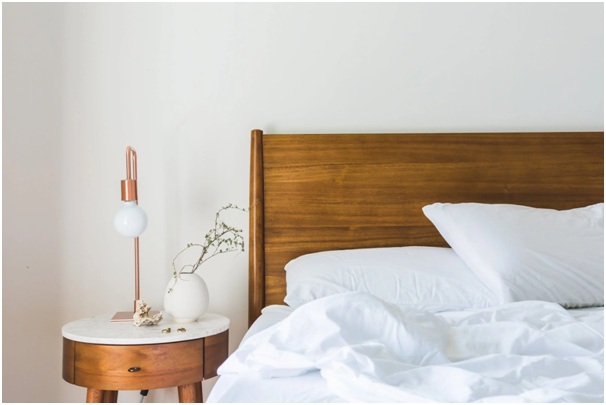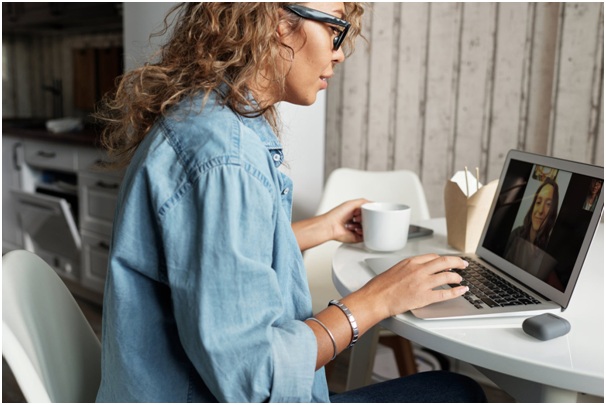In the past few months, people all over the world have experienced restrictions due to COVID-19. Routines changed, and new experiences can bring stress. Furthermore, many of us now have to spend long hours in front of a computer for classes or meetings.
https://www.pexels.com/pt-br/foto/adulto-bate-papo-cafe-comunicacao-4099099/
Both stress and excessive screen time can lead to insomnia and unpleasant dreams. So, how can you reclaim the peaceful sleep you so desperately need? Check out the tips we’ve put together below.
Comfort
One way to improve your sleep quality is to make sure you’re comfortable. To achieve this, you can adjust the configuration of your bed and what you wear.
Mattress
Choosing the right mattress can be a complicated decision. You need to consider your specific needs and then compare them to the products available.
There are several different types of mattresses, including:
- Innerspring
- Air
- Memory foam
- Hybrid
You want a mattress with sufficient firmness to keep your spine aligned. It also needs to be soft enough to conform to the shape of your body. Look for something that addresses specific needs you may have, such as back pain or sleep apnea.
It isn’t easy to decide what you like without actually using the product. Fortunately, some stores give you a test period of several weeks, after which you can exchange the mattress if it doesn’t meet your needs.
Some types have technology that regulates your temperature while sleeping. If you’re often too warm at night, you might want to consider buying an essential best cooling mattress.
Clothing
Sleep in fabrics that are comfortable for you. Cotton may be a wise choice because it’s breathable. However, you may want an even warmer material, like flannel, in the winter.
Loose-fitting clothes are usually the comfiest. If cold feet tend to keep you awake, you can wear socks. On the other hand, people who are typically too hot at night can try sleeping naked to make themselves cooler.
Pillow
Using the right pillow can also help you get more rest. The wrong one can cause pain, headaches, or even numbness.
Try to find a pillow that supports your head and neck, keeping them from going too far forward or backward. It’s time to replace yours if it doesn’t return to its original shape after you fold it in half.
Get a new one about every 18 months, especially if you have allergies. Pillows can harbor harmful dust mites, mold, and pollen.

Bedding
Your sheets also affect your sleep quality. Soft and breathable fabrics like cotton or linen generally provide the best comfort.
The thread count should be between 200 and 400 for optimal breathability. Higher numbers can cause the material to trap moisture and heat.
Cotton/polyester blends won’t keep you as cool and dry. You can best evaluate the feel of your sheets after washing them several times.
Did you know that the fresh smell of clean bedclothes can help you sleep better? Washing your sheets and pillowcases at least once a week eliminates the oils and sweat they absorb from your skin.
Exercise
Incorporating physical activity into your daily routine can help you get better rest. Jogging or walking may leave you just tired enough that you fall asleep more easily.
Some people have trouble relaxing if they exercise too close to bedtime. Others find that activities like yoga help them calm down at the end of the day. Pay attention to what works best for you and make it a habit.
Bedroom Environment
It can be tempting to use your bed for many activities, like reading, working, or watching TV. However, if you’re not getting enough rest, it probably isn’t a good idea.

Experts recommend using your bedroom only for sleep and sex. Doing so will help your brain associate this location with rest.
Keeping your room cool, dark, and quiet is another strategy for fighting insomnia. If you have to sleep in a noisy environment, try using earplugs. Blackout curtains or an eye mask can help block excess light that may bother you.
Evening Routine
You can do the same set of activities each night before bed to help you nod off quickly. Follow the identical procedure every evening, so your brain gets the message that it’s time to rest.
For example, you can put on your pajamas, brush your teeth, then do something that relaxes you. Try to keep a consistent bedtime, too.
The Takeaway
The COVID-19 lockdown has been a time of sleep disruptions for many people. You can start getting better rest by improving the comfort of your bed. Exercising during the day can also be helpful.
Carefully control the environment in your bedroom, and use it only for sleep and sex. A consistent evening routine can help you wind down and relax. Doing all of this can ensure you sleep well, even during the lockdown.

